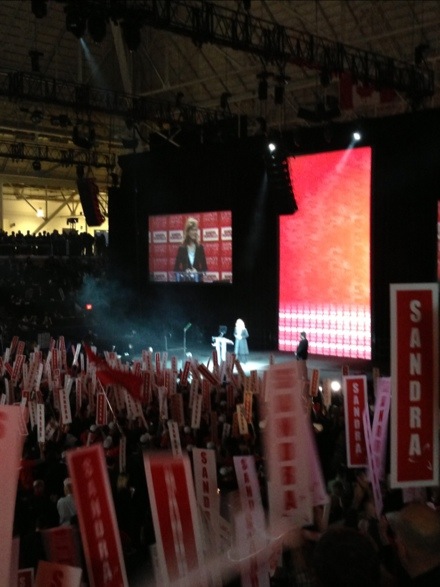In Tuesday’s Sun: is Idle No More no more?
It certainly looks that way. Despite Monday’s “day of action,” the grassroots First Nations campaign appears to be concluding with a whimper, not a bang. Polls suggest that, for many Canadians, Idle No More is far less important than it once was.
Attawapiskat Chief Theresa Spence ended her hunger strike, narrowly avoiding being removed from her post from her own band’s council. Meanwhile, the intense media focus — along with the public’s interest — has waned. Not as much is being said or written about Idle No More anymore.
Just a few weeks ago, discussion and debate about Idle No More was everywhere. The grassroots First Nations campaign had captured everyone’s attention.
In public relations terms, its achievements were extraordinary. With an unlimited budget, and some clever PR, it isn’t so difficult to attract attention. Anyone can do that (ask the Kardashians or Paris Hilton).
What is remarkable instead is the campaign reached millions of people organically — with no money, no strategic plan and no Madison Ave. ad agency to dream up catchy tag lines. Idle No More did that.
In 2011, the Occupy movement was like that, too. It had no budget, no leadership and no one to offer up sound bites to an impatient news media. Despite that, Occupy caused a sensation around the globe, drawing the support of millions upon millions. And then it disappeared as quickly as it came.
It’s not an entirely recent phenomenon. Throughout history, there have been other examples of people or ideas that have captivated the world without the use of force or treasure.
Christianity, for example, had undeniably inauspicious beginnings. An itinerant rabbi and a few poverty-stricken supporters walking the countryside, preaching a peaceful philosophy that would sweep the planet. No budget, no public relations team, no nothing. Just an idea.
Where did Chief Spence and Idle No More get off track? How did a movement that showed such promise lose so much momentum? Three reasons.
One, if you have a compelling message — and Idle No More inarguably did — stick to it. Have one “ask,” not 100. Idle No More lost the public because, after a while, no one could figure what it was about anymore.
Two, have a single spokesman saying one thing — not a disputatious chorus, all clamouring for time before the TV cameras and thereby creating communications chaos. At the start, Chief Spence was the face of the movement. Eventually, every other First Nations leader seemed to be trying to get in on the action, creating confusion about who led Idle No More, and what it hoped to achieve.
Thirdly and finally, don’t alienate the folks holding the microphones and notepads. The moment Chief Spence and her allies started to physically bar — or eject — reporters asking unwelcome questions, they were doomed. At the start, their main allies were the media. When Chief Spence lost them, she lost the larger war.
Idle No More could have secured positive change — and may still. A few short weeks after it began, however, it has been hurt by too many messages, too many spokesmen and a grave miscalculation about the media.
For First Nations willing to pay heed, Idle No More offers lessons about how to do things.
And how not to do them, too.


